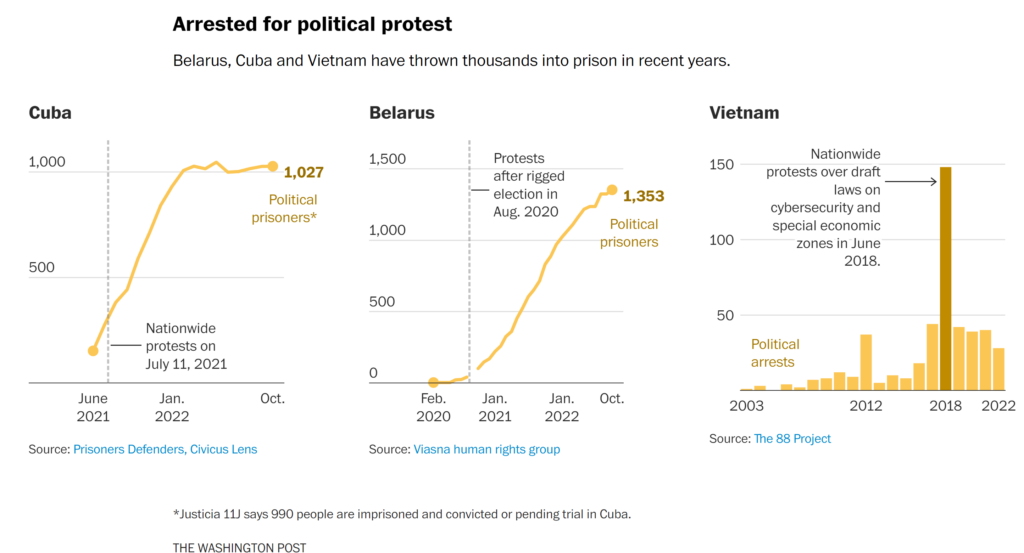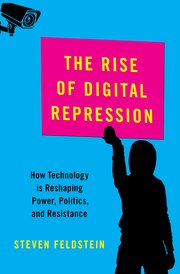
A new generation of protesters and dissidents need help to evade government controls. Free countries can develop and spread encryption software that protects their digital communications, as well as tools allowing people to circumvent government internet blockages, snooping and tracking. In times of conflict, helping besieged demonstrators stay online and spread the word can be vital, for example by deploying mobile internet technology such as the Starlink terminals used in Ukraine, Iran and elsewhere, The Washington Post reports in a must-read survey:
But as authoritarian regimes evolve and adapt to such measures, protesters will require new methods and tools to help them keep their causes alive — before the prison door clangs shut. It is a job not only for democratic governments, but for citizens, universities, nongovernmental organizations, civic groups and, especially, technology companies to figure out how to help in places such as Belarus and Hong Kong, where a powerful state has thrown hundreds of demonstrators into prison without a second thought, or to find new ways to keep protest alive in surveillance-heavy dystopias such as China.
Prebunking
After seeing promising results in Eastern Europe, Google will initiate a new campaign in Germany that aims to make people more resilient to the corrosive effects of online misinformation, AP reports:
The tech giant plans to release a series of short videos highlighting the techniques common to many misleading claims. The videos will appear as advertisements on platforms like Facebook, YouTube or TikTok in Germany. A similar campaign in India is also in the works. It’s an approach called prebunking, which involves teaching people how to spot false claims before they encounter them.
“There’s a real appetite for solutions,” said Beth Goldberg, head of research and development at Jigsaw, an incubator division of Google that studies emerging social challenges. “Using ads as a vehicle to counter a disinformation technique is pretty novel. And we’re excited about the results.”
 Iran is just the latest high-profile example of what Steven Feldstein, senior researcher at the Carnegie Endowment for International Peace, says is a growing trend of digital repression among governments around the world, CBC reports:
Iran is just the latest high-profile example of what Steven Feldstein, senior researcher at the Carnegie Endowment for International Peace, says is a growing trend of digital repression among governments around the world, CBC reports:
In 2011, the Arab Spring saw millions take to the streets across the Arab world in anti-government protests, aided by social media. At the time, there was excitement about the new pro-democratic future those online tools would bring. But Feldstein, author of The Rise of Digital Repression: How Technology is Reshaping Power, Politics and Resistance, has documented how governments have adapted in the face of those new tools with strategies like shutdowns, censorship, digital surveillance and disinformation.
Tools like machine learning can greatly simplify what used to be massive undertakings — and makes them far less obvious and intrusive, adds Feldstein, a contributor of the National Endowment for Democracy’s Forum.
“You look at the Stasi in East Germany in the past, and the million or so individuals who were part of the surveillance apparatus of the state, versus what China is able to do [today] with far [fewer] individuals,” he tells CBC. “And frankly, people may find it easier to tolerate something that’s in the background that’s watching them, as opposed to someone knocking on your door constantly and following you on the street.”







